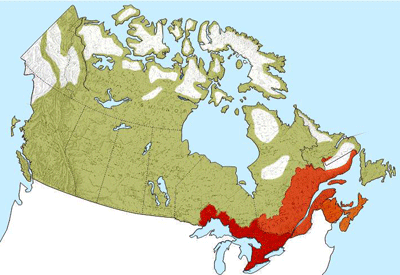June 29,2008 (See also Montreal Gazette) As Canadians prepare to celebrate their national holiday, few will realize that they are also celebrating a dirty bit of political chicanery. It all begins at 4 p.m. on Friday, July 9, 1982. The House of Commons meets in afternoon session, and only one item is on the agenda: Bill C-201, a private member’s bill to change the name of the July 1 holiday from “Dominion Day” to “Canada Day.” Fewer than 12 of the 282 members the House show up for work, which presents a procedural problem because a quorum of at least 20 members is required to conduct business. Officially, no bills could be passed. Nevertheless, Bill C-201 is given second and third reading. The time is 4:05 p.m. Our hard-working representatives call it a day. What transpired in those five minutes was a contempt of Parliament, but nobody cared. When the error was brought to the attention of Speaker Jeanne Sauvé the following Monday, she said no procedural rules had been broken because nobody called for a quorum count. A quorum was deemed to exist, thus making the actions of the House lawful. Leaving aside this feeble technicality, Opposition members objected that they were not properly forewarned of the bill’s second reading. “Today [July 12] I received notice advising that Bill C-201... wouldn’t be before the House during private members’ hour on Friday last, July 9,” said Alberta Tory MP Gordon Taylor. “The notice said the second reading would be resumed, but the notice has not yet been posted on the members’ bulletin board.” Yvon Pinard, the French-Canadian president of the Privy Council, claimed that the list of bills to be debated was distributed to Opposition parties on July 8, but what he then said disproves the notion that he cared at all about Parliamentary procedure: “We [the government] had hoped the bill would be passed during one of our very late nights, but unfortunately members present at the time were not yet mature enough; now a few days later, it seems a miracle has happened and we have the results at last.” [Translation: “We wanted to ram this change through without a fuss, but didn’t get away with it. So we cheated.”] Thanks to this “miraculous act of maturity,” Canadians now celebrate a vapid contrivance instead of a historically meaningful event. July 1 is supposed to commemorate the day in 1867 when New Brunswick, Nova Scotia, and the Province of Canada formed “One Dominion under the name of Canada,” as described in the British North America Act. In fact, the idea of a dominion was a uniquely Canadian achievement. The term came from New Brunswick Senator Samuel Leonard Tilley, who took it from the eighth verse of the 72nd Psalm: “He shall have dominion from sea to sea and from the rivers unto the ends of the Earth.”
The Balfour Report led directly to the Dec. 11, 1931, Statute of Westminster, by which Britain invested Canada and other dominions with full legal freedom. Beyond the religious connotation, “Dominion Day” embodies the essence of Canadian nationhood, and is associated with nation-building events. It was as the Dominion of Canada that this country came of age and fought in the Boer War and two world wars. Calling July 1, 1867, “Canada Day” celebrates nothing but contempt for our nation’s history. It is devoid of history and import, since one could argue every day is Canada Day since we live in Canada. Those who deprecate “Dominion Day” claim that the term connotes colonialism and dependency, even though the opposite is true. Others are uncomfortable with the Christian origin of the term, perhaps feeling that it is exclusionary. There is a way out of this mess, though. Since “Canada Day” was created illegitimately and is deliberately meaningless, Parliament should pass a private member’s bill to rename July 1 “Confederation Day.” What better name could there be? • It is historically relevant, since it describes the event that gave rise to the holiday; As for “Canada Day,” if Parliament really wanted one it should designate Feb. 10. On that day in 1841 the Act of Union came into effect by which means the British Parliament united Upper and Lower Canada into the Province of Canada. If you think Canada’s national holiday should be more than an anodyne lexical shell, call your MP to demand that it be given a real name, with real historic meaning. While you’re at it, petition for “Act of Union Day” so that we could have our long-desired February holiday. * Taylor described the proceedings of July 9, 1982, as “sneaky, sloppy and arrogant.” What self-respecting Canadian could argue? * UPDATE: In 2013, Canadians got a provincial, not national, February holiday––the bland, meaningless and ever-so-inoffensive "Family Day".
|
